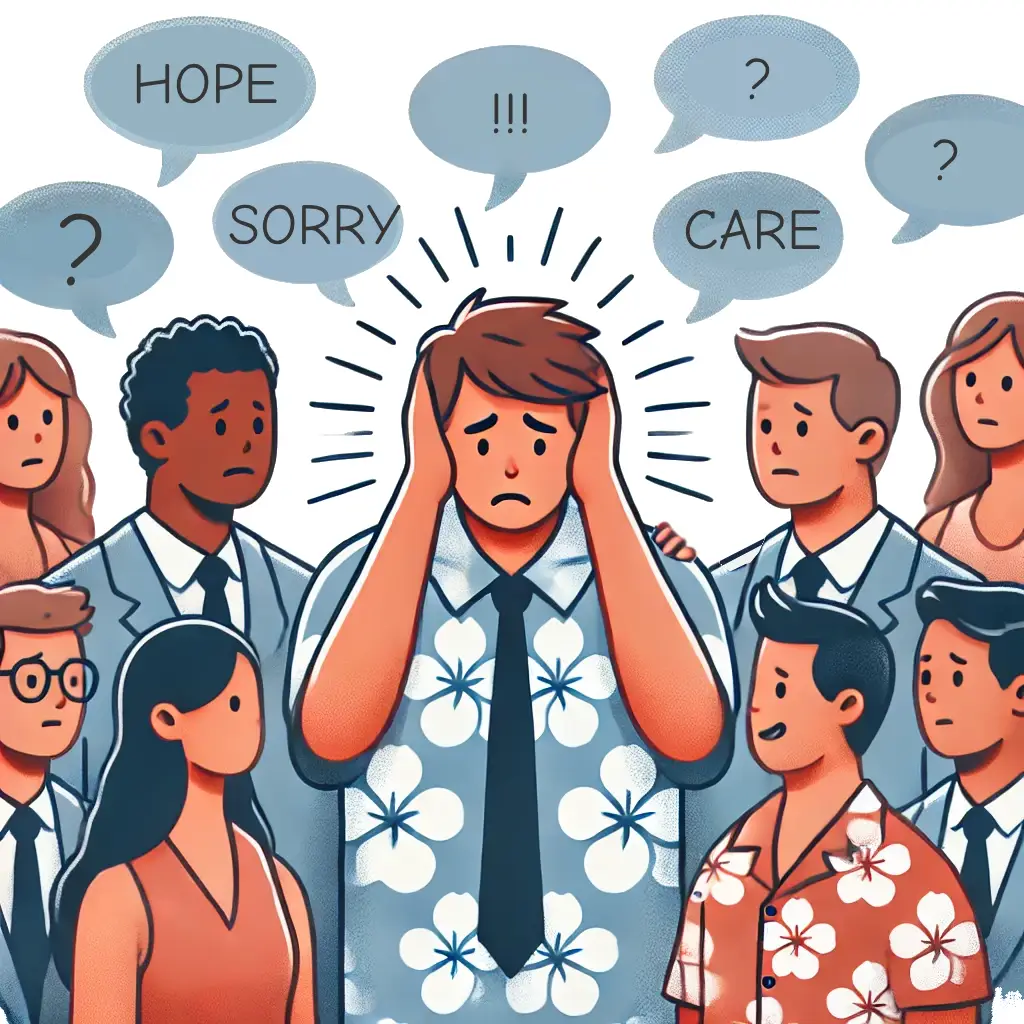Losing a job is an incredibly challenging experience, and navigating the reactions and comments from friends, family, and colleagues can be just as tough. Knowing what to expect can help you prepare emotionally and respond in ways that maintain your mental well-being. Here are five common things you might hear from others when you’ve been laid off, and how to handle them.
What should you expect to hear when you have been layed off:
1. "I’m so sorry to hear that."
This is one of the most common responses you’ll receive. People who care about you will naturally express their sympathy. They might not know exactly what to say, but they want to acknowledge your situation and show that they care.
Why it helps: Sympathy can feel comforting and validating. It shows that people recognize your pain and are there to support you. Accept their kindness and let it remind you that you’re not alone.
2. "You’ll find something even better."
Optimistic friends and family will try to encourage you by highlighting the potential for new opportunities. They want to lift your spirits by suggesting that this setback might lead to something greater.
Why it helps: Optimism can be contagious. While it might not always feel realistic in the moment, hearing positive affirmations can help you stay hopeful about the future. Let their encouragement bolster your confidence.
3. "Let me know if there’s anything I can do to help."
Offers of help can come in various forms, from practical assistance to emotional support. Whether it’s reviewing your resume, connecting you with contacts, or simply being there to listen, people want to assist you in any way they can.
Why it helps: Accepting help can ease the burden of your job search and provide emotional relief. Don’t hesitate to take people up on their offers, as having support can make the transition smoother and less isolating.
4. "What happened?"
Curiosity is natural, and people may want to understand the circumstances of your layoff. They might ask for details out of genuine concern or just to make sense of the situation themselves.
Why it helps: Sharing your story can be cathartic, but it’s also okay to set boundaries. Share as much or as little as you’re comfortable with. Remember, you control the narrative and how much you want to divulge.
5. "This could be a blessing in disguise."
Some people might try to put a positive spin on your situation by suggesting that it could lead to new and better opportunities. While their intentions are good, this can sometimes feel dismissive of your current struggles.
Why it helps: While it might not always feel appropriate, this perspective can help you see the potential for growth and new opportunities. Allow yourself to consider the long-term possibilities, even if it feels difficult in the moment.
How to Respond
Navigating these reactions can be challenging, but having a few strategies in mind can help:
Express Gratitude: Thank people for their concern and support, even if their comments aren’t exactly what you need to hear. A simple “I appreciate your support” can go a long way.
Set Boundaries: If you’re not ready to discuss details or don’t want to hear certain types of comments, it’s okay to gently steer the conversation. “I’m still processing everything, but I appreciate your understanding” is a respectful way to set boundaries.
Stay Positive: Try to focus on the supportive aspects of these interactions. People generally mean well and want to help, even if their words don’t always hit the mark.
Remember, it’s normal to feel a range of emotions during this time. Surround yourself with supportive people and use their encouragement to fuel your journey forward. With resilience and the right resources, you can navigate this transition and find new opportunities that align with your professional goals and personal well-being.
Go touch Grass,
Aloha Alex
